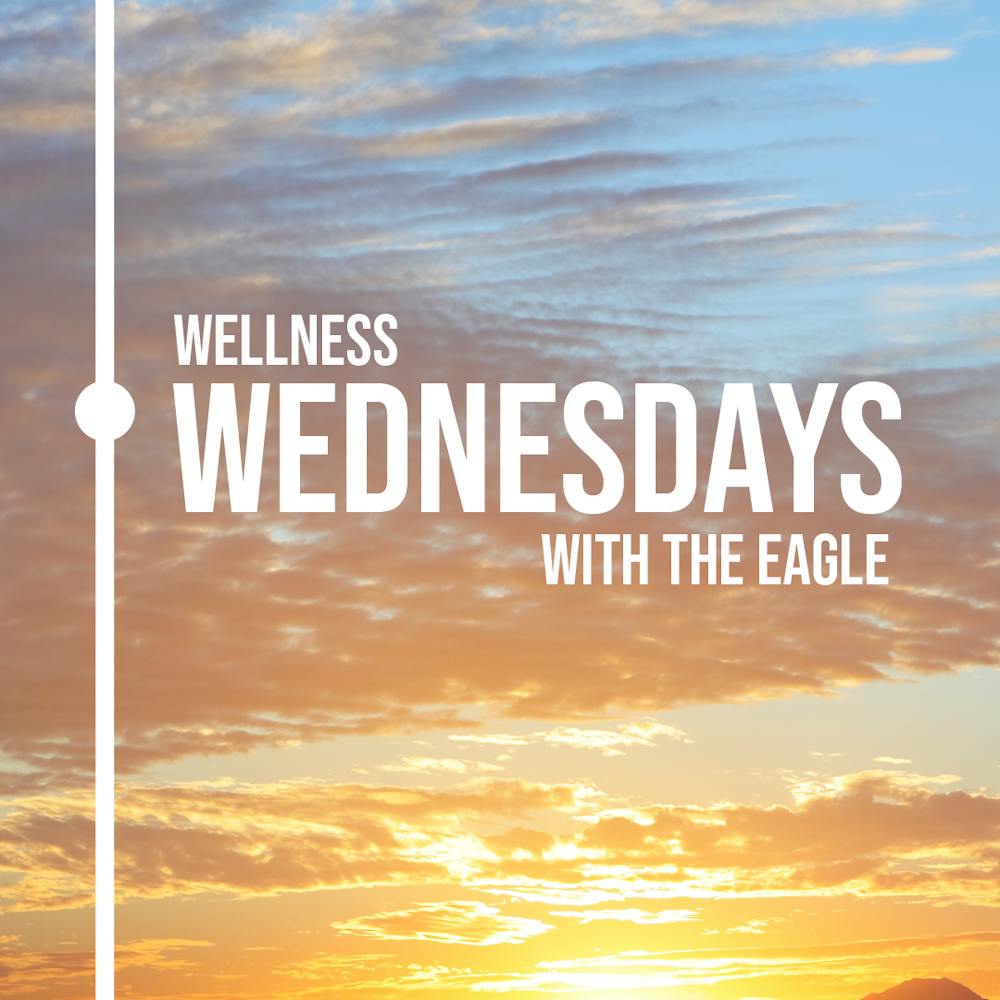Wellness is a term that for many may seem antithetical to the culture of higher education. It can seem elusive in college as one juggles finishing assignments, a part-time job and social obligations. Sleeping and eating well, two things entwined with wellness, can often get sidetracked.
Professor Tanja Aho shared with The Eagle their take on University culture and wellness within the classroom. Aho currently teaches several courses relating to disability justice and has made strides in creating more accessible classroom spaces.
“The most important thing I would say is to invest in [the] community,” Aho advised students.
They provided an example by bringing up how when you are in a crisis, your people are the ones who will get you through a hard time.
“That is worth investing so much more into than any paper,” Aho said.
Aho debunks the general belief in the moralism of grades. Students often believe that if you’re a good student then you’re a good person, while if you’re not a good student, there must be something wrong with you, Aho said.
“Your performance in a classroom is just one of the many ways in which you are human,” Aho said.
Aho said this belief comes from teaching from a disability justice perspective.
“All of our body-minds work in myriad different ways and some of our brains are more aligned with how we structure higher education,” Aho said.
As a result, Aho said they frequently check in on their students, making it a habit of devoting the first few moments of class time to either airing grievances or sharing something they’re looking forward to.
“I really wanted to provide a space that legitimizes students' feelings and to center that as important to the classroom space,” Aho said.
By giving space for student feelings, Aho acknowledges that students and professors have lives beyond the confines of campus.
This exercise has the potential to foster intimacy among students and the professor. Aho believes that the best learning occurs when you feel both community and intimacy with the subject matter and the people that you’re learning with.
The way in which this closeness is fostered is by being honest with each other about where we are each day. Aho attributes this teaching philosophy to disability justice advocate Mia Mingus’s theory on crip intimacy. This theory speaks to the sensation of comfortability and ease when your access needs are being met. Enveloping an acknowledgment that some days you will not be operating at full capacity and that this is not always within people’s control.
“What if college was about learning? What if college was about growing to be a more supportive, kind, caring person?” Aho proposed. “What if college was about learning to process your emotions and respond to harm in better ways? What if college was about learning how to learn and how to share your knowledge?”
If every student and professor at AU gave these questions some consideration, there could be a profound difference in the way we relate to each other with less competition and greater attention to all of our individual needs.





